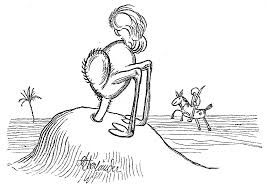Infidelity
Over 50
Infidelity can occur in many different forms.
Illicit sex is only one
Infidelity, adultery, affair, cheating, cuckoldry, extra-marital sex, internet affair, emotional affair, financial cheating, pornography, physical abuse . . . .
The number of ways that one can be untrue to the monogamous couple commitment, is a reflection of the complexity, the generality, and the specificity of the behavior.
The longer you live, the more likely it is that you will be affected by it
- directly - by the actions of your partner or yourself
- indirectly - through family and friends' experiences
It has been forbidden throughout history and it has occurred throughout history.
The speaker in the video below even notes that it the only sin to be have two commandments devoted to it, one forbidding doing it and another forbidding thinking about it.
You can get through it and move on, smarter and stronger, but that doesn't necessarily come easy
|
|
If you'd just like more information from an experienced professional who specializes in infidelity issues at this point, you might want to click on the picture to the left. I've found this fellow to be knowledgeable and responsible . . . and he has some very good free stuff that you can get right away.
Or, just read on. There's a collection of good information and links on this site too!
And, of course, when you're ready working with a couples' therapist experienced in recovery from the effects of infidelity is often the very best gift you can give yourself.
How much hurt , guilt, and/or defensiveness continues for how long is likely to be strongly affected by which part you played.
- To the one who strayed, past infidelities often really do feel like they happened long long ago in a galaxy far far away.
- To those whose spouse had the affair, the hurt, the lack of trust, the fear, the memories of it can stay alive and vivid for years and years.
There
are good reasons for these differences of experience and they
eventually have to be factored into any solution and moving on. Strangely enough, the excuses for having an affair that person comes up with can tell you a lot about them and what is likely to happen next, even though excuses solve nothing in and of themselves. (Infidelity excuses and what they might mean is a whole topic itself.)
For a more complete description of this you might like to check out what the American Association of Marriage and Family Therapists has to say on the topic by clicking here.
The definition of infidelity is simpler than the actual situation
What is or isn't infidelity is specific to the individuals involved, their values, beliefs, histories, and agreements with each other.
Is it sexual intercourse? a kiss? a hug? a secret bank account? an internet relationship? lunch? a drink after work? or . . .?
Whatever the specific form it takes for you, it is a breach of what the two of you have agreed on at a very basic level.
Which leads to wondering . . . if it's that simple, how can there be so much of it? How can it be so hard for many people to avoid?
It isn't as though people just get up one morning and decide to do something incredibly stupid and hurtful.
If infidelity weren't a risk for all of us (to one degree or another), there would not have to be so many warnings, admonitions, and threats about it. Thinking "that will never happen to me" is probably a mistake. Thinking that it only happens to bad people, uninteresting people, lazy people, or any other group that, of course, doesn't include me and you, also has its problems.
An admittedly superficial survey of
available information on the beliefs of major religious groups on this
topic shows a consistent abhorrence
Even without
engaging in a great deal of ethical, moral, or pragmatic thought, the
very fact that that throughout the spectrum of religious traditions it
has been specifically and seriously proscribed tells us that this one is
dangerous. They didn't spend a lot of time and effort warning us
against things that didn't matter or we were unlikely to ever face.
The warnings against it are so strong and from so many directions that it should come as no surprise that if you do find yourself tempted or guilty, there is even a predictable set of excuses
Now we're even warned that cheating can occur without any physical or sexual contact.
This "emotional infidelity" can be at least as damaging as that which includes physical contact.
Even
those who question the existence of infidelity without physical, sexual
contact are likely to concede that the emotional components of an
affair are often the hardest to heal from.
It
is not uncommon to hear that forgiving the physical contact was easier
than letting go of the picture of their partner having an emotional
attachment with the other person.
It
used to be something that was rumored, perhaps inferred from a
closeness, that took place under relatively unusual circumstances, like
the stories told about Dwight Eisenhower with his secretary in England
during the second world war. Who knows? It certainly was a set up; far
from home, lonely, under tremendous stress.
You face
opportunity/risk of emotionally close relationships that exclude your
primary partners every day in work and recreational settings.
 Office spouses can get very close
Office spouses can get very close
Most of the time you don't
even think twice about the risks to your relationships at home posed by
closeness and shared purpose of relationships outside of your home, but
it's there nonetheless. You'll find more than a few references to a work spouse, including suggestions for how to keep the relationship from getting too close and how to tell if you've gone over the line.
You need to be aware that you and our partner are put into harm's way
by work, business travel, busy separate schedules, both parties working,
recreational activities and the internet in ways that in ways that
previous generations could not have imagined.
Knowing some of the more common emotional infidelity signs can be very helpful. You can find more discussion of emotional infidelity HERE.
And if we find our thinking or that of our partner getting a bit strange (such as the classic I love her/him/you but I am not in love with her/him/you ) it's probably time to become more aware of what is going on between you and your partner.
Consciously keep your relationship healthy
Given the numerous temptations and pitfalls in everyday life now, your relationship-health "inoculation" schedule has never been more important. And, it isn't complicated or heavy. Dr. John Gottman's research into what makes marriages work points to very simple things such as treating your partner as a friend, helping each other in ways that the receiver of the help wants as being most important, and allowing yourself to be affected by your partner as being keys to success.
It requires being aware of the ways
in which you and your partner may be putting ourselves at risk or
actually stepping over the line. Infidelity studies can be helpful (CLICK HERE for more), as can infidelity warning sign lists
in popular media, but when does this sort of behavior shade over into
paranoia? I don't know, but like anything else, using your own judgment
about your own situation is a good place to start. We don't want or
expect our house to catch on fire, but knowing where the extinguisher
and the exits are is still a good idea.
Breaches of trust happen . . . be smart about what you do next
 What you don't know can hurt you
What you don't know can hurt youKnowing what kinds of things you
can do to make clear decisions and take smart actions if you or your
partner strays can save you from making a hard situation even harder.
It is a good time to get knowledgeable professional help.
Family and friends mean well, but they necessarily have a limited perspective and are very likely to get in the way of your coming to your own decisions and learning your own lessons. Accept their support, but be cautious of their advice.
The two links to more information on this page,"Infidelity Help" near the top of the page and "Did Your Wife Cheat", are for products and services that I have found to be solid and helpful.
They are both quite generous with free information so that by the time you have read that and applied some of it, you should have a good idea of whether paying for their more in depth books and services would be of value to you or not.
Return from Infidelity to the Home Page of this site.
Copyright @ 2008 - 2018 Better-Relationships-Over-50.com